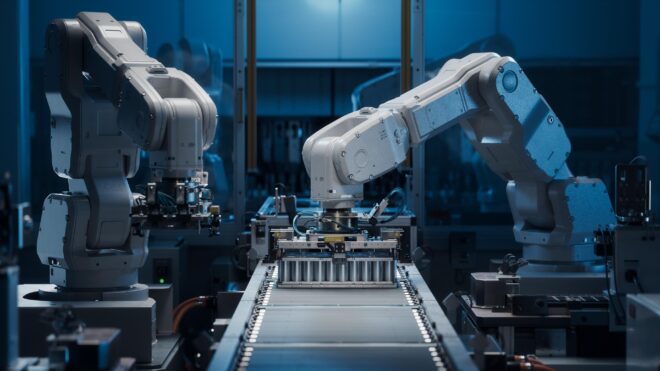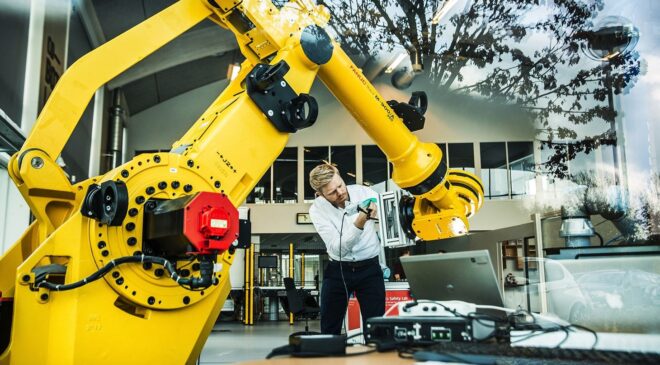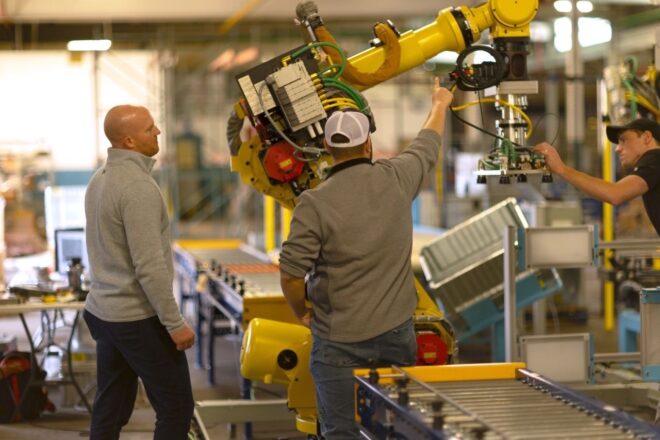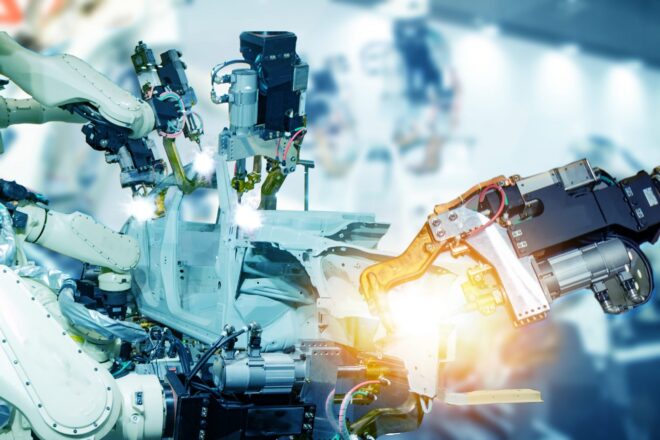Automation has become one of the defining features of modern industry. From automotive manufacturing to logistics, companies across the globe are turning to robotic systems to increase efficiency, reduce costs, and maintain consistent quality. Yet, implementing advanced robotics isn’t as simple as buying machines and plugging them in. That’s where robotic system integrators come in.
Integrators are the experts who design, configure, and implement robotic systems to fit seamlessly into existing production environments. This article explores the role of robotic system integrators, the benefits they bring, and why they are central to the success of Industry 4.0.
What Are Robotic System Integrators?

Robotic system integrators are specialists who design, develop, and install robotic solutions tailored to specific business needs. Rather than offering generic machines, they integrate robots into existing workflows, ensuring they work harmoniously with people, processes, and technology.
Their work typically includes:
- Assessing the client’s production requirements.
- Designing customised robotic solutions.
- Programming and configuring robots.
- Installing hardware and software.
- Training staff to use the system.
- Providing ongoing support and maintenance.
Why Integration Matters
A robot on its own is simply a machine. Without proper integration, it cannot deliver maximum value. Robotic system integrators ensure:
- Seamless Operation – Robots work alongside existing machines, software, and staff without disruption.
- Efficiency – Processes are streamlined, cutting down on wasted time and resources.
- Safety – Robots are implemented with safety protocols, protecting workers.
- Scalability – Systems can be expanded or adapted as the business grows.
Industries Benefiting from Robotic System Integrators

Automotive
From welding car frames to assembling intricate parts, integrators design robotic systems that meet the demands of high-volume automotive production.
Aerospace
In aerospace, where precision is critical, integrators develop robotic systems capable of performing delicate, complex tasks with minimal error.
Food and Beverage
Packaging, palletising, and quality control tasks are increasingly automated thanks to robotic systems integrated into food production lines.
Logistics and Warehousing
Integrators configure robots for picking, packing, and sorting, ensuring faster order fulfilment and reduced human strain.
Metal Fabrication
With robotic welding, cutting, and handling, fabricators benefit from improved consistency and efficiency.
Benefits of Working with Robotic System Integrators

Tailored Solutions
Every business is unique. Integrators don’t offer one-size-fits-all robots; they design bespoke solutions for each client.
Reduced Costs
Although automation requires upfront investment, integrators ensure systems deliver a strong return on investment by optimising productivity and reducing waste.
Improved Safety
Robots can take on dangerous, repetitive, or physically demanding tasks, reducing workplace accidents and injuries.
Faster Production
With robots working consistently and without fatigue, output increases significantly.
Access to Expertise
Integrators bring knowledge not only of robotics but also of the industries they serve, ensuring practical and effective solutions.
The Role of Integrators in Industry 4.0

Industry 4.0 refers to the fourth industrial revolution—one defined by smart factories, interconnected systems, and digital technologies. Robotic system integrators are central to this transformation.
By combining robotics with artificial intelligence, sensors, and data analytics, integrators help businesses create agile, efficient, and intelligent production environments.
Collaborative Robots (Cobots) and Integration
A growing area for integrators is cobots—collaborative robots designed to work safely alongside humans. Integrators play a key role in programming and adapting cobots for welding, assembly, and other repetitive tasks. Unlike traditional industrial robots, cobots are flexible and can be reprogrammed easily, making them ideal for businesses with varied workloads.
Challenges Robotic System Integrators Solve
- Complexity – Integrating robots into existing processes without disrupting operations.
- Compatibility – Ensuring new systems work with current equipment and software.
- Staff Training – Providing employees with the knowledge to operate and maintain robotic systems.
- Scaling Up – Expanding automation as demand increases without major downtime.
- Customisation – Adapting robots for specific, sometimes highly specialised, tasks.
Sustainability Through Robotics
Automation isn’t just about efficiency—it also supports sustainability. Robots reduce material waste, improve energy efficiency, and ensure processes are more consistent, which reduces scrap. Integrators play a vital role in helping companies meet environmental goals while maintaining profitability.
Choosing the Right Robotic System Integrator

When selecting an integrator, businesses should look for:
- Experience – Proven expertise in the relevant industry.
- Innovation – Ability to provide forward-thinking, flexible solutions.
- Support – Comprehensive aftercare, including training and maintenance.
- Customisation – A willingness to design solutions specific to business needs.
- Certifications – Compliance with safety and industry standards.
Cyber-Weld: Experts in Robotic System Integration
Cyber-Weld are trusted robotic system integrators with a track record of delivering cutting-edge solutions across multiple industries. Their services include:
- Robotic welding and metal fabrication systems.
- Integration of collaborative robots (cobots).
- Bespoke automation tailored to client requirements.
- Ongoing training and support to maximise ROI.
With deep expertise in robotic automation, Cyber-Weld helps businesses embrace the future of manufacturing with confidence.
Conclusion
Robotics is transforming the way industries operate, but without expert integration, businesses risk falling short of automation’s true potential. Robotic system integrators provide the knowledge, design, and ongoing support needed to ensure robots deliver maximum value.
From automotive plants to small fabrication workshops, integrators help businesses become safer, more efficient, and more competitive in a rapidly changing world.
By working with trusted experts like Cyber-Weld, companies can take full advantage of robotics and step confidently into the future of Industry 4.0.


